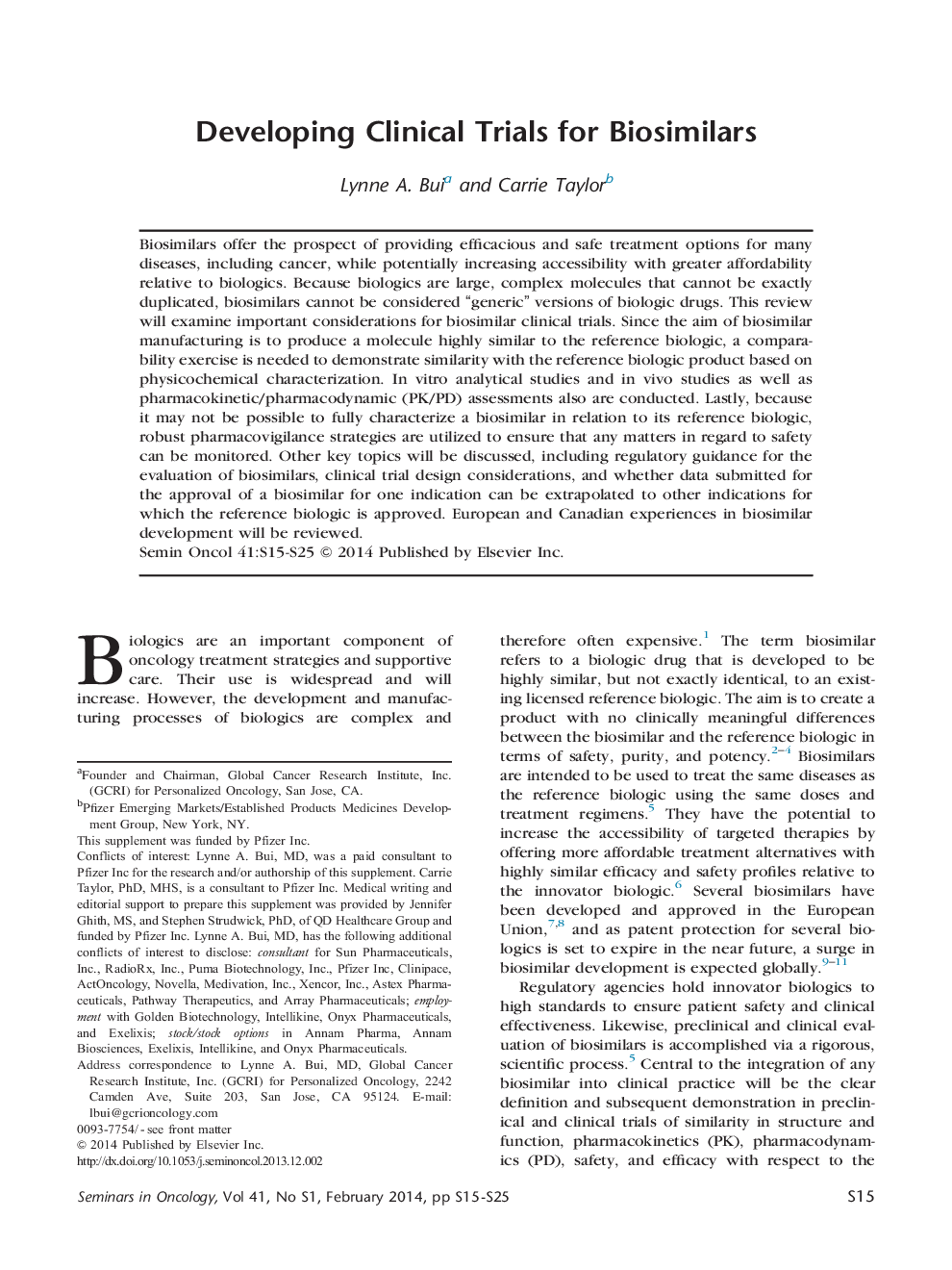| Article ID | Journal | Published Year | Pages | File Type |
|---|---|---|---|---|
| 2162019 | Seminars in Oncology | 2014 | 11 Pages |
Abstract
Biosimilars offer the prospect of providing efficacious and safe treatment options for many diseases, including cancer, while potentially increasing accessibility with greater affordability relative to biologics. Because biologics are large, complex molecules that cannot be exactly duplicated, biosimilars cannot be considered “generic” versions of biologic drugs. This review will examine important considerations for biosimilar clinical trials. Since the aim of biosimilar manufacturing is to produce a molecule highly similar to the reference biologic, a comparability exercise is needed to demonstrate similarity with the reference biologic product based on physicochemical characterization. In vitro analytical studies and in vivo studies as well as pharmacokinetic/pharmacodynamic (PK/PD) assessments also are conducted. Lastly, because it may not be possible to fully characterize a biosimilar in relation to its reference biologic, robust pharmacovigilance strategies are utilized to ensure that any matters in regard to safety can be monitored. Other key topics will be discussed, including regulatory guidance for the evaluation of biosimilars, clinical trial design considerations, and whether data submitted for the approval of a biosimilar for one indication can be extrapolated to other indications for which the reference biologic is approved. European and Canadian experiences in biosimilar development will be reviewed.
Related Topics
Life Sciences
Biochemistry, Genetics and Molecular Biology
Cancer Research
Authors
Lynne A. Bui, Carrie Taylor,
